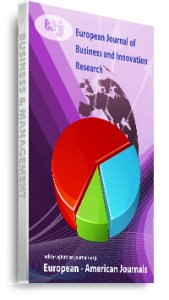This paper analyses the effect of resource inimitability on sustainable competitiveness of universities. The analysis is embedded on the Resource Based View model (RBV and the balanced scorecard model of performance). According to RBV of strategic Management, competitive advantage is closely related to companies’ internal characteristics (value, rarity, inimitability and non-substitutability). The constructs of sustainable competitiveness were derived from the balanced scorecard (Financial; Teaching/Learning; Service/outreach; Scholarship/ Research and Workplace satisfaction). Although RBV is considered one of the most influential theories of strategic management, this paper unveils the empirical evidence of resource rarity on sustainable competitiveness in the service industry (universities). A sample of 262 was selected from 2 universities in Kenya (one private and one public). Using the regression analysis, findings revealed that the public university was superior in resource inimitability than the private university and also that resource inimitability contributes to sustainable competitiveness in universities.
Keywords: Balanced Scorecard., Inimitability, Non-substitutability, Resource value; Rarity, Resource-Based View

